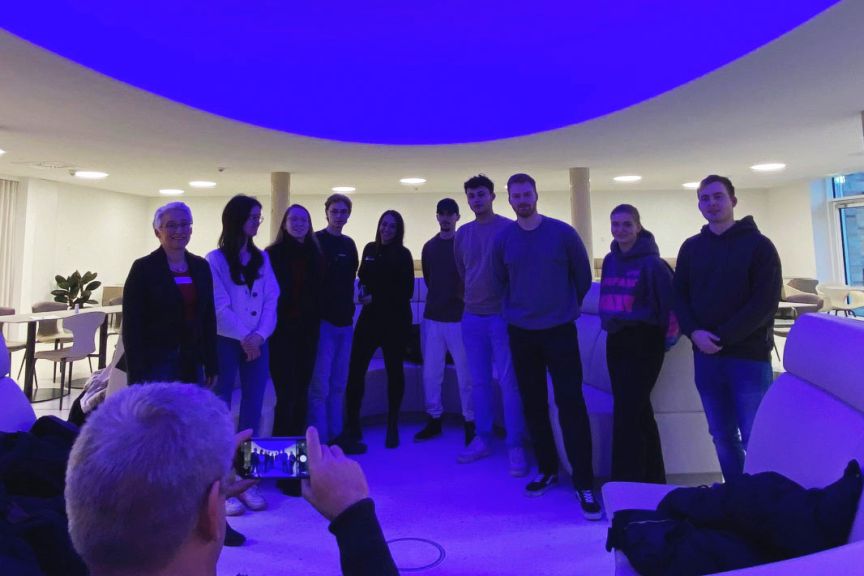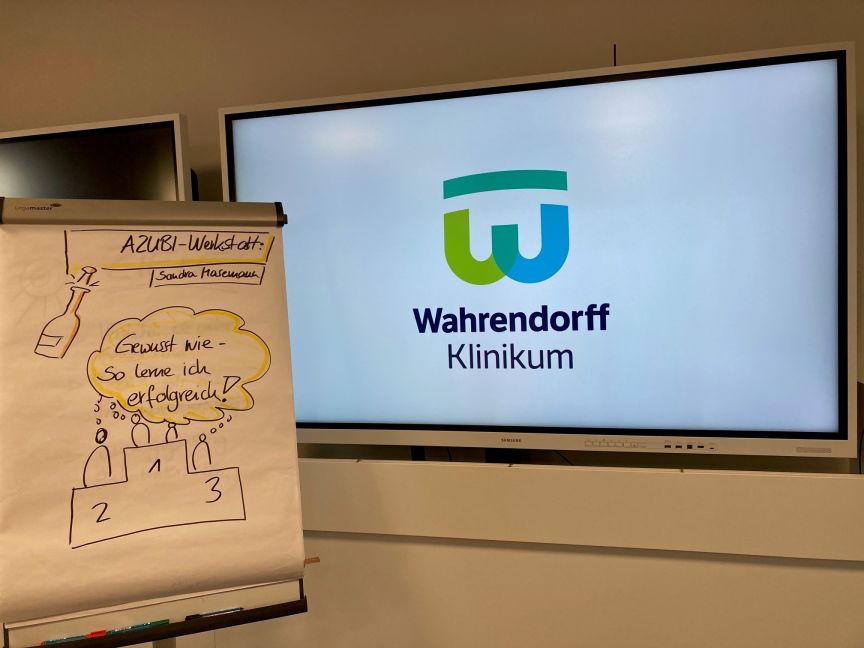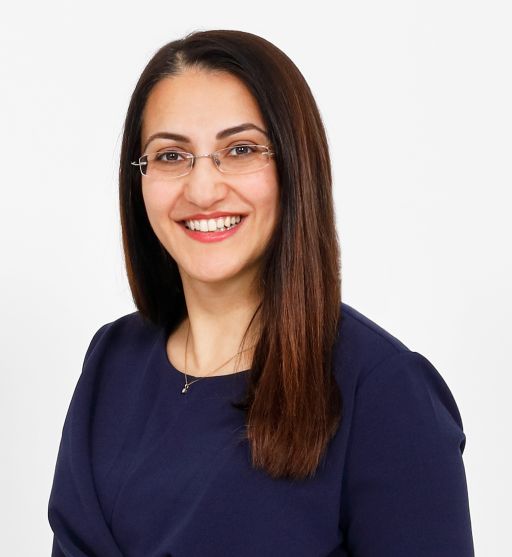AZUBI WERKSTATT: Actively help shape the training period
 Hanover Region
Hanover Region  Hanover Region
Hanover Region Since October 2023, valuable tips and practical solutions have been developed jointly by trainees from various regional companies in the AZUBI WERKSTATT of the Hannover Region. The AZUBI WERKSTATT meets at regular intervals to discuss various overarching topics. The exchange helps the trainees to make the best possible use of their training period and to actively help shape it. This form of promoting young talent supports the Hannover Region's employment promotion program in order to ensure the competitiveness and innovative capacity of companies in the Hannover Region. This requires, among other things, a sufficient number of well-trained and motivated junior staff.
"What does the training of the future look like?" - This question was addressed by 45 company representatives and their trainees across all sectors at the two-day event #WORK HACKS: TRAINING OF THE FUTURE . The focus was on the trainability of young people and the challenges facing companies in times of a shortage of skilled workers.
The mission statement of the Hannover Region event triggered a change in perspective. Instead of talking about each other, the dialog took place with the trainees: What characterizes their living environments? What challenges do they face? What do they need to successfully start and complete their training? Instead of dropping out of training, how can they succeed in learning and working? What do trainees expect from their training and what do companies expect from their trainees?
Moderator Nina Kainenburg worked with the methods of Design Thinking and Lego Serios Play to find joint solutions to the company-specific questions. One key result was that the trainees wanted to set up an exchange platform that they could design themselves.
The organizers Jannik Giebel (trainee at regiobus Hannover GmbH) and Dr. Mahzad Peschke (Project Coordinator, Employment Promotion of the Hannover Region) present what exactly is behind the AZUBI WERKSTATT format.
Question for Jannik Giebel: What do you think the future of training will look like for young people?
In my opinion, the training of the future will be characterized by better cooperation between vocational schools and companies. For the most part, the curriculum is not adapted to the training plans of the companies and vice versa. As a result, there is a lack of connection between theory and practice, especially at the beginning. That's a real shame! More opportunities for the exchange of trainees from all professional fields would also be an enrichment. The wheel doesn't always have to be reinvented, because in many areas the training courses are not that different and you can learn very well from and with each other.
I have noticed a trend in the perception of apprenticeships. I think that many students in the upper school have already been looked at stupidly when they say that they are doing an apprenticeship. They say "How? You're only doing an apprenticeship?" or have beentold by teachers that "everyone here is going to university anyway". This expectation or pressure of expectation is also a problem in our society,and I ask myself why schools and companies are not more responsive to the wishes, needs and suggestions of trainees.
Question for Jannik Giebel: How did the idea for the exchange platform come about?
We took part in the two-day workshop "#Business Hacks: Training of the Future" and had the opportunity to talk to other trainees in group work. My group came up with the idea of an exchange platform, which we then presented to Mahzad Peschke from the Hannover Region, the organizer of the workshop. Our idea was taken seriously, which I thought was great. The agreement was that we trainees should be involved in the implementation and take responsibility. I think that's great!
Question for Dr. Mahzad Peschke: What role does the Hannover Region play in the AZUBI WERKSTATT?
First and foremost, we take on the role of "listener" and "networker". Our aim is to take a needs-oriented approach, which is why it is essential to offer formats such as "#Business Hacks" in order to engage with the target group. As Jannik Giebel has already said, my aim is also not to reinvent the wheel, but to look within our region to see which participants, speakers, cooperation partners, etc. exist and how we can work together.
In the next step, we take on the role of "organizer" and "promoter". Here, too, it is important for me to see what resources we can draw on. For example, our team leader for HR development and training, Dr. Hilko Paulsen, offered a workshop on the topic requested by the trainees: "How can I motivate myself?".The format thrives on the involvement of the trainees, such as taking on the role of moderator and immediately putting into practice what they have learned about how to present themselves.
Question for Dr. Mahzad Peschke: The kick-off event for the first round of the AZUBI WERKSTATT took place on October 12, 2023. Can you tell us about it?
At our kick-off, there were 17 trainees from various sectors, e.g. logistics, mechanical engineering, healthcare and social services. We asked the trainees "What do you need to successfully complete your training? Tell us your 5 topics!" The trainees were given time to think and discuss in their small groups. The topics requested included How does learning actually work? Learning to learn? How can I present myself in the best possible way in my oral exams to get a good grade? How can I have challenging conversations with trainers? Of course, not everything can be achieved at the AZUBI-WERKSTATT, such as the desire to optimize training plans.
As we are focusing on the desired topic of "learning", I hope that the trainees will be able to apply the learning methods they have learned, the tips for better structured learning and how to present themselves in oral examinations. The aim should be to prepare for the exams in the best possible way. We take up what perhaps not every company can offer its trainees. In consultation with some trainers whose trainees come to us, we receive feedback that they think it is good that their trainees learn to take responsibility, for example for planning an appointment at their company. Both trainers and trainees really appreciate the exchange of ideas with each otherand, in addition to the topics, we have jointly defined the framework conditions, such as how often and at what intervals we would like to meet and where. There was also a desire to meet at the companies.
Question for Dr. Mahzad Peschke: What does this look like in practice? What characterizes the format?
After ranking the topics, I started looking for speakers and set dates with the trainees. The trainees offered to prepare individual dates at their training company.
Every two months, a 2- to 3-hour appointment takes place at a company or at the Hannover Region. Five appointments are planned from October to May. We then visit another employer, such as Hanno in Laatzen or Klinikum Wahrendorff in Sehnde. This means that the respective trainees have to organize the event themselves (planning the room, consulting with the speakers, discussing the schedule, taking care of catering), and if they get stuck, Jannik and I provide support. Someone else takes responsibility for each date. It should be emphasized that participation in the events is working time.
Question for both: What do you hope to achieve with this new format?
Dr. Mahzad Peschke:My motivation is firstly to set an example: Let's talk to each other and not about each other. On the other hand, I want to remain true to our approach in promoting employment, which is to take a needs-oriented approach. To support the companies in our region in promoting young talent in order to become even more attractive.
Jannik Giebel:The cooperation and exchange between trainees from different areas and sectors creates an awareness of other areas of work and other activities. One or two trainees may also have ideas that can improve training from other companies. With the aim of making training in the region more attractive, one small step closer.
Question for Jannik Giebel: What are the next concrete steps?
The next step is to plan the next workshop dates. At the same time, we are already preparing for the second round. The planned start is in September 2024. Our focus here is not on finding possible topics, but on how we can make the AZUBI-WERKSTATT even better.
Question for Dr. Mahzad Peschke: Is it possible for trainees to participate in the format?
Yes - in the next cycle, which begins in October 2024. It is not possible to join a course that is already running. In a cycle, the group grows together, you get to know each other and can open up more. This creates a trusting and pleasant atmosphere. So if you are interested in taking part, please contact Jannik and me.
"I like taking part in the AZUBI-WERKSTATT because you can always find things in common between the different apprenticeships where you can support each other. It gives you the opportunity to learn things that go beyond the scope of the different professions."
Trainee Julie L. Kucharzeck, Wehrhahn + Partner Steuerberatungsgesellschaft mbB
"The trainee workshop promotes the personal development of every trainee, as it enables them to interact with other trainees and teaches them methodological skills."
Nils-Frederik der Kucharzeck, Wehrhahn + Partner Steuerberatungsgesellschaft mbB, Julie's supervisor
Contact us
Dr. Mahzad Peschke
Hanover Region
Employment Promotion
Department of Economic and Employment Promotion

